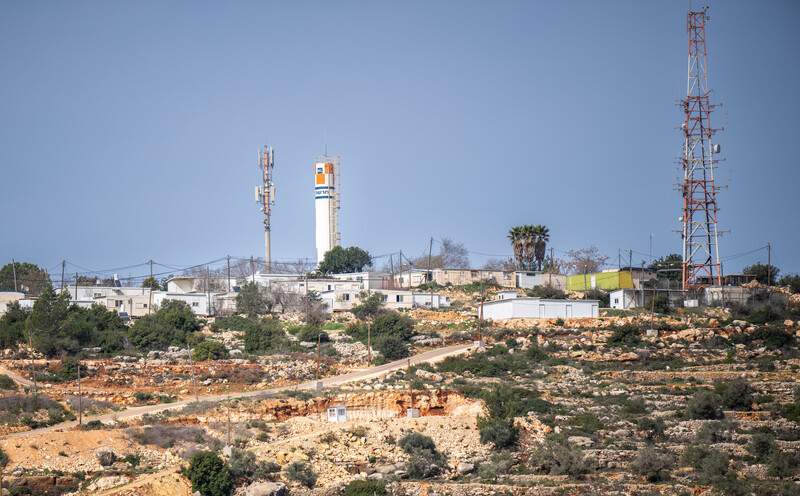The Electronic Intifada 25 July 2024

Israelis have built a settlement near the Harasha spring in the occupied West Bank.
DPAPalestinians in the occupied West Bank dread the arrival of summer.
Hot weather exacerbates the problems associated with a severe water shortage. The cost of avoiding dehydration can be exorbitant.
While Palestinians have to try and survive with little water, Israeli settlers enjoy an uninterrupted supply.
Soon after its occupation of the West Bank and Gaza began in 1967, Israel placed all water resources under its control.
Palestinians in the West Bank are blocked from accessing and using freshwater springs.
Najib Ladwa is from the village of al-Mazraa al-Gharbiyya, north of Ramallah, a West Bank city.
He used to irrigate his crops with water from the nearby Harasha spring.
“This spring provided water for the entire village,” Ladwa said. “It was sufficient for our needs and more.”
The situation has worsened considerably over the past decade. The spring is now reserved for use by residents of an Israeli settlement.
Ladwa is forced to buy water at a cost of more than $100 per week.
He has stopped cultivating a large part of his farmland as he cannot irrigate it properly.
The water crisis is similarly acute among Palestinian communities living closer to Jerusalem.
Discrimination
Iyad Sandouka is a resident of Kafr Aqab. a town in the Jerusalem area. He pointed out that Mekorot, Israel’s water company, discriminates against the town.
Because of Mekorot’s policies, Kafr Aqab only has running water for a few hours per week.
“These hours don’t meet the needs of a quarter of the population,” Sandouka said.
Some people in Kafr Aqab have to spend $200 on water every few days. “That is despite how we pay all the taxes that we have to pay,” Sandouka said.
Dozens of residents have begun weekly protests outside Mekorot’s offices, registering their disquiet at the discrimination which they face.
Earlier this month, the International Court of Justice (ICJ) declared that an occupying power has the “continuing duty” to ensure that the local population has adequate food and water.
The court noted that Israel “prioritizes the water supply to settlements.” That policy works “to the detriment of Palestinian communities, which suffer from lengthy and frequent water outages.”
Both the quantity and quality of water to which Palestinians have access are “well below the levels recommended by the World Health Organization,” the ICJ declared.
It observed, too, that Israel’s settlement activities have caused the pollution of groundwater.
“Dwindling supplies of water and associated environmental degradation have severely undermined the Palestinian agricultural sector, reducing employment possibilities,” the court stated.
The ICJ’s findings on water were included in an advisory opinion asserting that Israel’s occupation of the West Bank and Gaza is illegal.
Fayha’ Shalash is a journalist based in the occupied West Bank.





